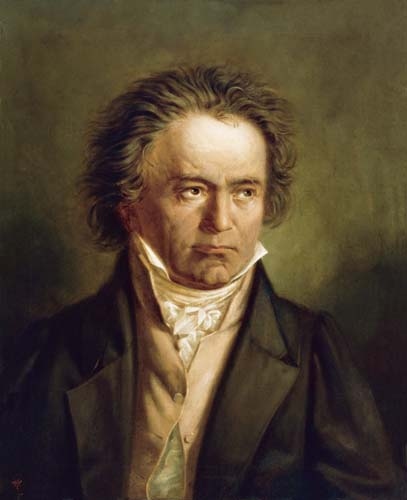Chicago Philharmonic’s Beethoven Ninth thrilling and thoughtful
The past twenty years haven’t always been easy for the Chicago Philharmonic. Founded as Symphony II, the Evanston-based orchestra has had its financial ups and downs, most recently last year when, like virtually every arts organization in the country, it was hit hard by the economic downturn.
But there’s never been any doubt about the artistic worth of the ensemble, whose longtime core members include a dozen musicians from the Lyric Opera orchestra. It was only fitting, then, that the Chicago Philharmonic would close its 20th anniversary season Sunday night with a high-octane musical challenge: Beethoven’s Symphony No. 9.
And it was hardly surprising that their performance of the work led by music director Larry Rachleff would provide not only the requisite thrills but also food for thought. (Also onstage for the Beethoven symphony were the North Shore Choral Society directed by Julia Davids and four members of Lyric Opera’s Ryan Center for Young Artists.)
This was not Beethoven as a blunt instrument, a Ninth racing by in emotional overdrive, though the familiar high points were present and accounted for. The full-throated chorus brought a jubilant bounce to the symphony’s final moments; bass-baritone Sam Handley’s initial solo was full of clarion weight. The other three soloists— soprano Amanda Majeski, mezzo-soprano Katherine Lerner, and tenor Rene Barbera—sounded relaxed, and their fresh voices were more than capable of handling the wide leaps and ringing top notes in the Ode to Joy.
But Rachleff was equally interested in the symphony’s Classical side—its elegant phrasing and intricately layered textures. Throughout the performance, the orchestra’s horns sounded radiant and mellow rather than sharply declamatory. The violins were crisp, their inner voices clearly delineated.
Most exciting, though, was the sense of spontaneous conversation among sections of the orchestra. This was most apparent at the start of the final movement, when the orchestra was gathering its musical thoughts, well before chorus and soloists joined them for the Ode to Joy. The orchestra’s cellos and double basses kept interrupting the musical flow, their dark-toned voices repeatedly cutting in, urgent and jumpy. This was operatic recitative at its finest–compelling, dramatic melody that pushed the action forward.
The concert opened with the choral voices blending expressively in Randall Thompson’s a cappella setting of a text from the Book of Isaiah, Have Ye Not Heard? Ye Shall Have a Song, from his The Peaceable Kingdom.
David Perry, Chicago Philharmonic’s concertmaster, was the soloist in Beethoven’s wistful Romance No. 1 for violin and orchestra. His performance was full of warmth and dark, sculpted melodic lines.
Posted in Uncategorized






